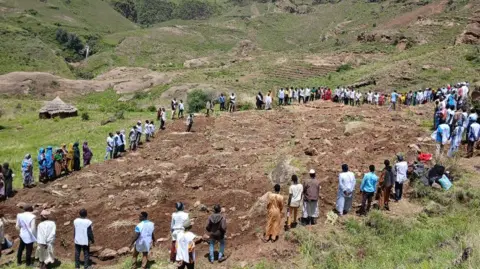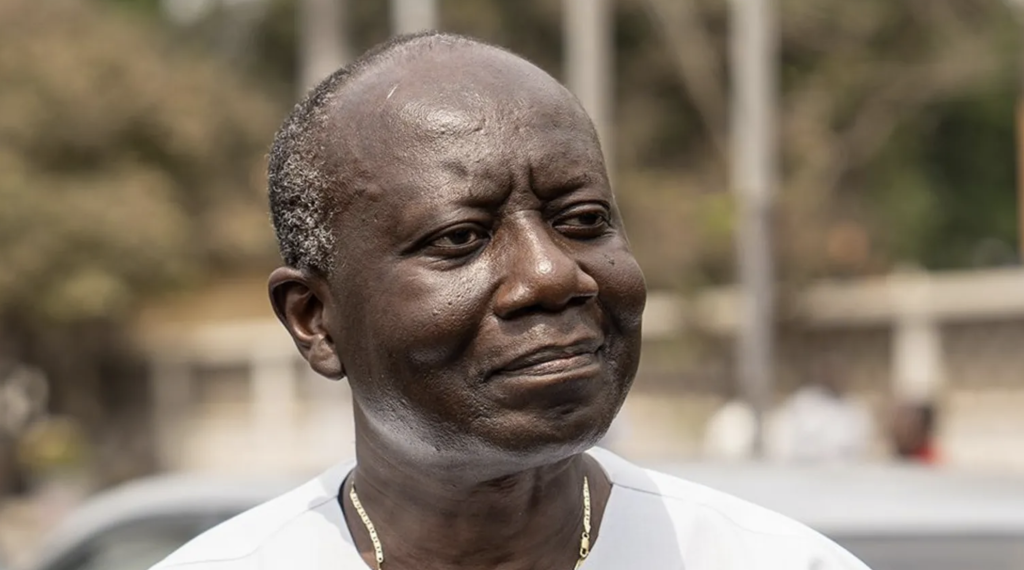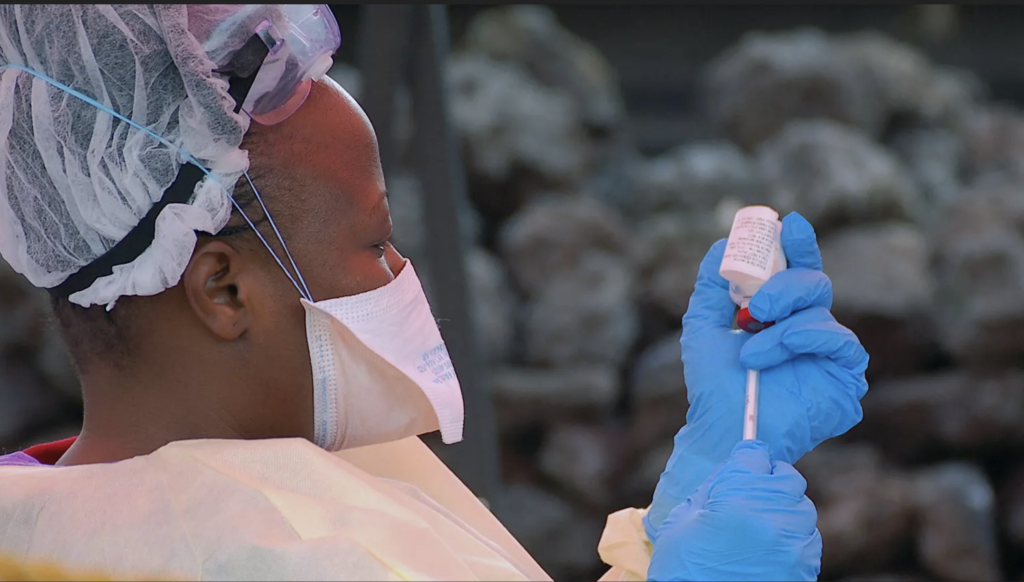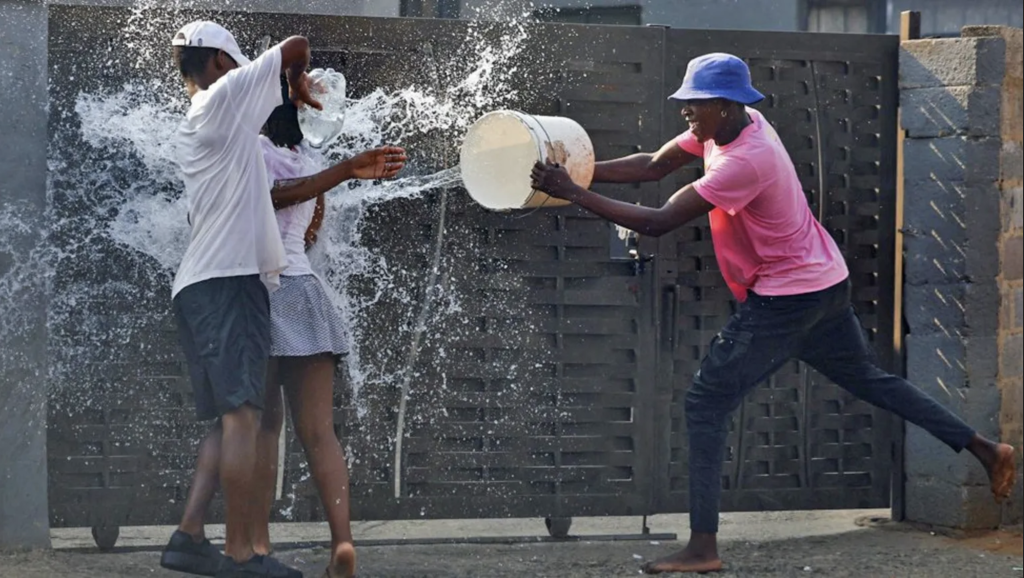Aid workers use donkeys to reach remote Sudan landslide site
Written by Emilia Ndandi on September 5, 2025
Aid workers on donkeys have delivered the first humanitarian supplies to survivors of a landslide that reportedly killed hundreds of people in a remote mountain village in Sudan’s western Darfur region.
Heavy rains and flash floods that hit Tarasin village triggering the disaster on Sunday have continued, meaning donkeys are the only way to reach the affected families.
“Families in Tarsin have lost everything. It took our team more than a full day on a rocky, muddy, and hilly route to reach this devastated community,” said Francesco Lanino, from aid agency Save the Children.
It remains unclear how many people died.
The armed group in charge of the area put the number at 1,000, however the health ministry says only two bodies have been recovered.
On Thursday, local civilian leaders said they had recovered and buried the bodies of hundreds of people.
“We recovered 370 bodies and buried them. Others are still trapped under the rocks and some were carried away by floodwaters,” said Ibrahim Suleiman, one of the local leaders in Daramo locality, in a video seen by the AFP news agency.
- Sudan landslide: A collapsing mountain and bodies still buried under rubble
- Race to find survivors after Sudan landslide kills hundreds
The footage shared by the Sudan Liberation Movement/Army (SLM/A), which controls the area showed residents and rescuers gathered at a makeshift burial site, praying for the victims laid to rest, according to AFP.
Mujib al-Rahman al-Zubair, another local leader, said in a video shared with the Associated Press on Thursday that rescuers had found 375 bodies, while more remain trapped underground.

Sudan Liberation Movement/Army Many of those who died have already been buried, local leaders say
The SLM/A has remained neutral in the civil war which has been ravaging Sudan for more than two years and many people have escaped to the Marra Mountains area where the landslide occurred to escape the fighting.
Antoine Gérard, the UN’s deputy humanitarian co-ordinator for Sudan, earlier gave the figure of 370 deaths, but said that it was hard to assess the scale of the disaster or the exact death toll as the area was so hard to reach.
The UN said an inter-agency assessment “will seek to provide verified figures in the coming days”.
On Thursday, an emergency team of 11 staff riding donkeys delivered medical supplies, food, water and tarpaulins to the affected communities in a journey that took over six hours, Save the Children said in a statement.
The team includes medical staff, child protection experts and a mental health team, the agency said, adding that up to 1,000 people had been affected.
Mobile health clinics and emergency medical teams have also been deployed to provide immediate care on the ground, with UN agencies and partners preparing to send more supplies to meet additional needs.
“Tarsin is one of the most isolated villages in one of the most remote parts of Sudan. Heavy rains and flash floods have made the response extremely challenging,” said Mr Lanino, the deputy country director of programmes and operations for Save the Children in Sudan.
In a statement, the SLM/A said the “catastrophic humanitarian” situation in Tarasin required urgent international intervention.
The ongoing conflict in Sudan has also severely hampered rescue efforts, according to another aid organisation, World Vision.
“With hundreds of lives lost and communities shattered, we are racing against time and immense challenges to reach the most vulnerable,” said Simon Mane, the national director for World Vision in Sudan, describing the situation as a “tragedy of unimaginable scale”.
About 150 people have been displaced from Tarsin and neighbouring villages, with families now sheltering in nearby communities, according to the International Organization for Migration (IOM).
The landslide compounds a deepening humanitarian crisis in Sudan, a nation already in the grip of a crisis where 30 million people are in need of assistance.
Heavy rains and floods have affected at least 21 areas across Sudan in recent weeks, with fears of disease outbreaks, and experts predicting an unusually wet season continuing into September.




